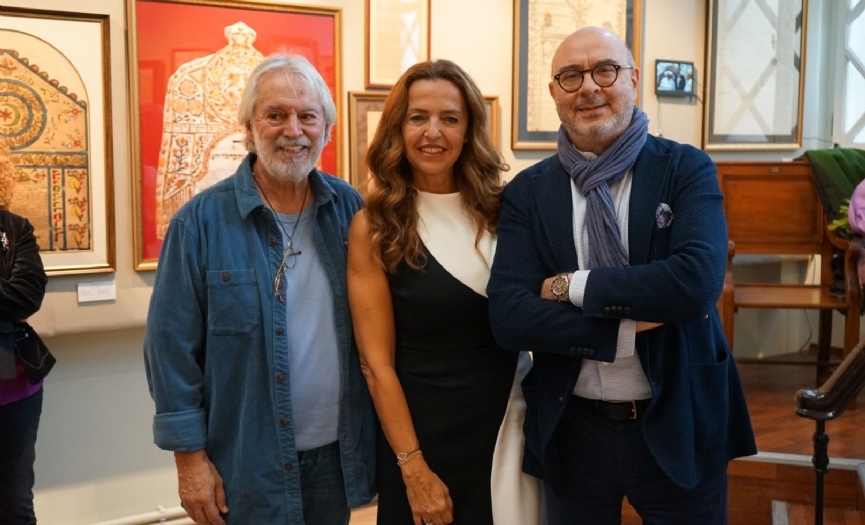
"Humor on the Margins: Cartoons in the Turkish Jewish Newspaper Şalom" by Rakel P. Meşulam
Rakel P. Meşulam signed her first book "Humor on the Margins: Cartoons in the Turkish Jewish Newspaper Şalom (1947-2016)" at Schneidertempel Arts Center.
The book signing event for Rakel P. Meşulam's book "Humor on the Margins: Cartoons in the Turkish Jewish Newspaper Şalom (1947-2016)" featuring the research for her doctoral thesis, took place on November 10th, at Schneidertempel Arts Center.
During the event welcoming a large crowd, the first person to speak was Şalom Newspaper's Editor-in-Chief Ivo Molinas. In his speech, Molinas talked about the unremitting 77-year history of Şalom Newspaper, published since 1947, its experiences, its struggles, the hard work of the writers, and the path it has covered without deviating from its principles.
Next Şalom Newspaper's "End of the Tunnel (Tünelin Ucu)" cartoon corner's artist Izel Rozental in his speech, with his usual satirical and witty narration, talked about the first days he had started drawing cartoons in Şalom, the difficulties he experienced from time to time, and Rakel Meşulam's choosing Şalom and his own cartoons as the topic of her doctoral thesis.
Then Rakel Meşulam mentioning her long years of arduous work while preparing her thesis, thanked her family and the Şalom Newspaper who gave her their full support during this period, and her advisor Prof. Nazan Haydari, who was by her side at every step of the way and helped her with patience and understanding.
Following the speeches, Meşulam signed her book, all proceeds of which will be donated to the Students Aid Foundation (ÖYD).
The book "Humor on the Margins: Cartoons in the Turkish Jewish Newspaper Şalom (1947-2016)" traces the communication strategies of Şalom, the longest-running Turkish Jewish newspaper published since 1947, and offers a multi-layered analysis of Şalom's first pages and Izel Rozental's editorial cartoon corner titled "Tünelin Ucu (End of the Tunnel)." The content and historical discourse analysis of the selected front pages shed light on the various communication strategies used by Şalom during four important periods in the history of the Turkish Jewish community.
Related News












